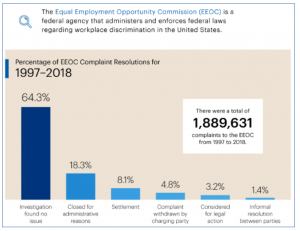Unemployment is a setback, especially for those who have dependents and are caretakers of their families, spouse, and children.
There are times when things can go south, and one has to be prepared for it. While no one naturally aims to fail, unforeseen circumstances and bad luck can ruin anybody’s game plan. In the wake of such events, termination from a job can be looked upon by many as a shocking experience, to say the least. However, all is not lost; one must hope to reacquire their work status and never give up on trying to deliver their best performance. In this post, let’s see some of the rights and employee has if they receive a termination letter from their bosses.
Employment Rights after Termination
- Protection from Pre-Mature Termination
It should be duly noted that in the case of a fixed-term contract of employment, the employer is advised to not terminate the contract before the term is served. In case an employer goes against the period of employment which the contract mentions, then, in that case, you can take them to court. The only provision through which a fixed-term contract can be terminated by the employer is if the employee commits a serious breach of contract or any other actions that can be seen by the law as criminal activity. Other than that you have protection from the legal framework to inform the employer about the risks of terminating your contract. A recent study from Glassdoor shows that more than 50% of Americans believe that they can replace a job in six months.
- Protection against Discrimination
There are laws in place that can help applicants, present employees, and even ex-employees from discrimination based on race, color, religion, sex, and national origin. Hence if you find that your employment has been wrongfully terminated by your employer that falls under the banner of discrimination, then again you can file for a case and take them to court.

Both Article 14 of the Human Rights Act and the Equality Act 2010 can be invoked by you. However, it is essential to know that the latter offers a stronger case. Furthermore, we also have Title VII of the Civil Rights Act of 1964 that can exclusively protect employees from being terminated based on the grounds of direct or indirect discrimination. According to the findings of the Equal Employment Opportunity Commission, 64.3% of complaints regarding discrimination had no actual issue.
- Protection for Public Policies
Public policies, as the name implies, are for the protection of the public. Hence in case, your employer terminates your contract on the basis that you stood in defence of public policy then again you can take them to court. The public policy represents that no harm should be brought to the public and their common welfare and if your occupation directly opposes this than you have every right to complain and show disobedience to your employer. However, if the employer then retaliates by terminating your contract for non-conformity to given orders, then in such a case you represent your case by stating that you acted for the public goodwill and for the welfare of the public. According to the study published by Connectivity, the number#1 public policy issue for the State of Alabama is Ethics/Corruption.
- Protection for Not Going against the Law
Over here, we would like to shed some light on a case scenario where an employer asks an employee to specifically indulge in unlawful and illegal things for the benefit of their enterprise. If the employee refuses to act as per such directives and as a result, is then terminated by the employer, help from the court can be acquired. The employee can seek the assistance of the legal framework to seek protection from the actions of the employer as well as request the legal bodies to protect their employment. However, if such an event does transpire, it can be assumed that as an employee you would like to depart from such a venture eventually but have some other protections or requests in place for the court.
- Right to Receive Final Paycheck
Employees that are terminated are entitled by the law to receive their payments, and these can include wages, overtime pay, vacation pay, and general holiday pay. The payment time, however, can vary where in some cases the employer must pay the final paycheck immediately after terminating an employee or they can have some business days to their advantage. However, a final paycheck must be paid in all circumstances as this is a right of the employee, which is given due protection from the law.
If for some reason a considerable period expires and the terminated employee doesn’t receive their final paycheck then in that instance, they can take the support of the legal framework to obtain their due amount. According to a survey conducted by CareerBuilder, found that nearly one in every ten worker making $100,000 live paycheck to paycheck.
- Right to Receive Severance Pay
Severance pay is defined as the amount of money or benefits the employee is entitled to receive when they leave employment at a company un-willfully. Severance pay was instituted to protect the newly unemployed. However, severance pay comes into effect when such regulations are mentioned in the employee policies of the company. Severance contracts also mention that after receiving the due amount, the employee will not sue the employer for wrongful dismissal. However, it should be clearly understood that there are no international standards as such, which is why severance pay can vary from one government to another.
- Health Coverage Benefits (Limited Duration Only)
Employees that have been terminated have the right to health insurance even after separation from their employer. However, this limited duration where a terminated employee receives health coverage can range up to 18 months and that too if your employer has over 20 employees. For more details about this coverage, we suggest that you go through COBRA. The Consolidated Omnibus Budget Reconciliation Act is a health insurance program that allows eligible employees to receive health insurance coverage even after an employee loses their work. COBRA plans can pay up to $650/month. COBRA beneficiaries have 60 days to decide whether they want COBRA coverage or not.
- Unemployment Compensation
If you are a person who has recently lost their job, due to no fault of your own, then you are entitled to receive unemployment compensation. Unemployment compensations come into effect when an employee loses their job due to lay-offs or retrenchment. However, to be eligible for it, a specific criterion has to be satisfied. Unemployment benefits or compensations are often a calculation based on the employee’s pay over a 52-week period. Payments are usually received through an unemployment check or through a direct deposit. A primary example of this case could be the employees who lost their jobs due to the recent coronavirus pandemic.
- Call an Attorney
While some would say that losing a job is pure humiliation, we chose to differ as there might be a case where a person may have been maltreated. For this very reason, we have protections from the law for wrongful dismissals. Furthermore, if you think that your rights might have been violated, then you have a complete obligation to pursue a pathway with the help of the law to sort things out. Here, a specialized lawyer or attorney can help by exploring your legal options. Knowing your rights even after you have been terminated are extremely important, a lack of awareness on your part can be viewed as extremely damaging.
- Right to Receive Mass Lay-Off Notifications
WARN or Worker Adjustment, and Retraining Notification can provide workers with some protection in the case of mass lay-offs. The act enforces that employers give their teams at least a sixty-day period notice before such an event comes to transpire. It has to be a conscious effort on the part of the employer to relay this information no later than sixty days before such a decision is actually executed. Employees working for an employer with more than 100 employees are generally covered by WARN. However, it should be noted that employees who worked for six months in the last 12 months or less than 20 hours a week are not counted as a part of those covered and protected by the WARN act.
Conclusion
Unemployment is a setback, especially for those who have dependents and are caretakers of their families, spouse, and children. To lessen the impact of such an impediment, one must be aware of the various laws that provide them with the due protection that can reduce their burden. We all make mistakes, and they teach us valuable lessons to improve. Termination is not the end of life. One should always strive forwards and never give up the good fight. However, a sensible approach is to know the law and see for yourself how you can seek protection from unforeseen circumstances and pure bad luck.


Join the conversation!